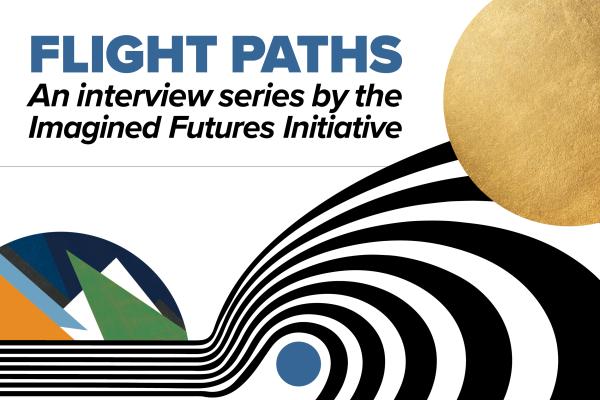FLIGHT PATHS | Not So "Soft" Skills

Graduate alumni are using their skills in many lines of work. Career allies can support graduate students as they discern what career path is right for them. "Flight Paths" is a series of alumni profiles — produced by GAHDT's Imagined Futures: Graduate Professional Development Initiative — that highlights the key roles mentors play in equipping graduate students to imagine and prepare for a diverse array of meaningful careers. Each story describes a mentorship strategy that alumni found pivotal to their career success.
Authors: Erin Allen (PhD, Music), Larissa Mulder (PhD, Music) and Imagined Futures Director Danielle Fosler-Lussier (Music)
Versatile Skills for Any Profession
Interpersonal skills and personal dispositions — such as effective communication, critical thinking or organization —have often been labeled as “soft skills.” But calling these skills “soft” might lead some to underestimate their importance and utility. While technical skills and knowledge (“hard skills”) may help graduate students enter specialized lines of work, soft skills add value in any work context. Graduate programs offer students opportunities to develop these transferable skills. Because these skills are common in academic research, though, programs may not think to highlight their importance.

SARA CLETO (PhD ’18, English and Folklore) says graduate work helped her to develop strong communication skills because she had to clearly and convincingly explain to diverse readers how the various disciplinary strands in her research and writing fit together. Cleto says that her current work draws extensively on a broad set of communication skills — things like “being a strong writer or having experience communicating with students and collaborators or generally managing a wide network of other people.” Cleto’s graduate education strengthened these skills — thereby preparing her for employment. “If you have good communication skills,” she says, “almost every job you can get is going to be easier.”
Cleto is the co-founder of the Carterhaugh School of Folklore and the Fantastic, where she combines her passion for folklore with innovative teaching for public audiences. She continues to use the teaching skills she developed in graduate school and attributes her strong writing, public speaking, people management and research and content creation skills to her graduate training. Her work at the Carterhaugh School has allowed Cleto to build on these skills as well as develop new skills such as marketing, copywriting and business management.
The Art of Learning Quickly

RAMON PADILLA REYES (PhD ’18, Hispanic Linguistics) explains that one of the most valuable things a PhD offers is confidence — the boldness that comes from earning the degree through your own effort. He says the real value lies in the skills he developed during the process: “You learn how to learn, how to learn quickly and how to push through challenges and get things done.” These skills helped him advance in his current career at Meta (Facebook). When prompt engineering emerged as a completely new field — one that no one knew how to approach — he knew he would be able to learn it quickly and advance in his career. As a result, he developed a level of expertise that few others had and has become an expert in the field.
Graduate training also offers extensive opportunities for self-direction. Padilla Reyes notes that a doctoral project requires both idea generation and follow-through: “Nobody is going to generate ideas for you, so you have to do it for yourself. That type of behavior is difficult to train.” He notes that many workers “lack the skill of proactively looking for the task that they need to do.” These skills, developed through his graduate career, were foundational in how he approached job interviews and his current work.
The Takeaway
Graduate programs foster a broad range of essential skills and dispositions — including oral and written communication, project management, adaptability and self-motivation — that equip students for success across diverse career paths. Students develop these skills in the context of graduate research, teaching and related projects in their specific disciplines — but these skills are equally valuable in many other professional contexts. Recognizing their value can significantly enhance a student’s marketability and career potential, both inside and outside the academic field.
